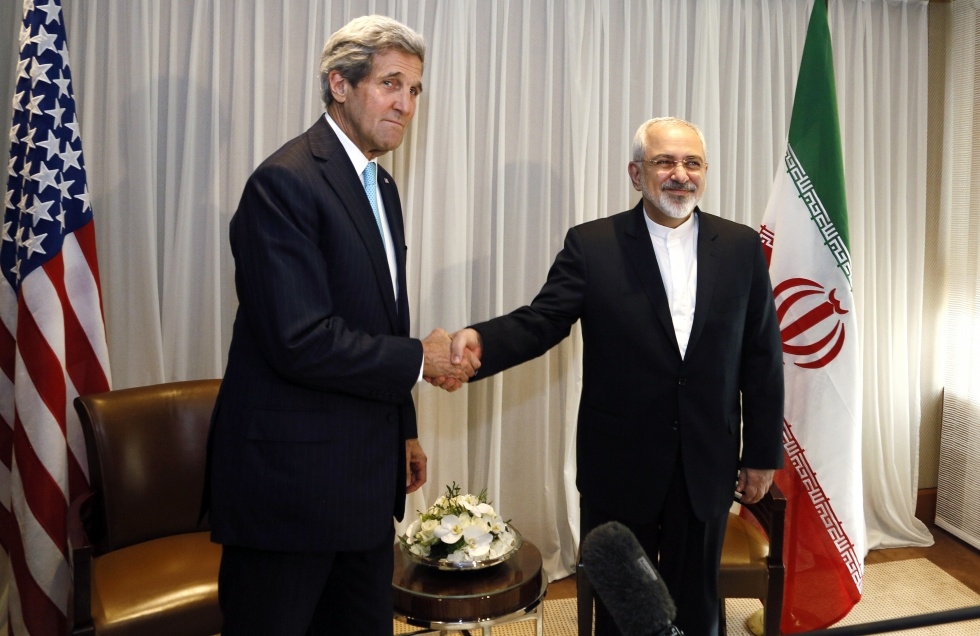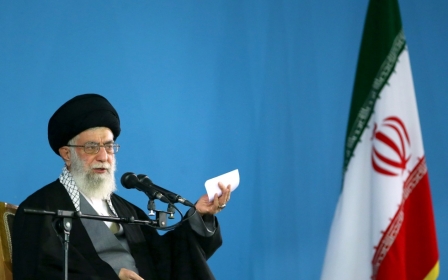US, Iran hold 'substantive' talks on nuclear deal

US Secretary of State John Kerry and Iranian Foreign Minister Javad Zarif met in Geneva on Wednesday in a bid to speed up negotiations for a nuclear deal.
An Iranian delegation will hold nuclear talks with US officials in lower level bilateral talks on Thursday, ahead of Sunday's discussions with the P5+1 group - the US, UK, France, Russia and China, plus Germany.
"I think it's important. I think it will show the readiness of the two parties to move forward and to speed up the process," Zarif told reporters before he met Kerry.
State Department officials said the talks had ended at about 1700 GMT on Wednesday after five hours. Ninety minutes later, the pair held a second, surprise meeting that latest over an hour, but it remained unclear what it focused on.
Both sides are seeking to break a stalemate which has caused them to miss two previous deadlines for a full agreement to rein in Iran's nuclear programme.
Asked if there would be a comprehensive deal by the new July 1 deadline, Zarif remained cautious, replying: "We'll see."
Negotiators have been tight-lipped about their differences and Zarif would not go into detail when asked about the thorniest matters still clouding the talks. "All issues are hard until we resolve them and all issues are easy if you resolve them," Zarif said.
Past negotiations have stumbled reportedly over Iran's insistence that it retain the right to enrich some uranium - which can in some cases be used to make an atomic bomb - for what it says is a peaceful civilian nuclear programme.
There has also been disagreement over global sanctions, which have crippled Iran's economy, while the US has insisted on a temporary, gradual suspension.
The US' new Republican-controlled Congress is already considering a bill which would slap new sanctions on Iran despite attempts by the Obama administration to hold them off.
Washington's UN envoy Samantha Power warned Monday that "imposing new sanctions will almost certainly end a negotiations process that has not only frozen the advance of Iran's nuclear programme, but that could lead us to an understanding that would give us confidence in its exclusively peaceful nature".
Under an interim deal between world powers and Tehran in force since January 2014, Iran agreed to limit its uranium enrichment.
In return, Iran received limited relief from a network of global sanctions, obtaining about $7bn from more than $100bn in oil revenues frozen in bank accounts around the world.
Middle East Eye propose une couverture et une analyse indépendantes et incomparables du Moyen-Orient, de l’Afrique du Nord et d’autres régions du monde. Pour en savoir plus sur la reprise de ce contenu et les frais qui s’appliquent, veuillez remplir ce formulaire [en anglais]. Pour en savoir plus sur MEE, cliquez ici [en anglais].



